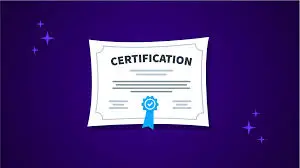Course Overview
This course provides participants with essential knowledge and skills to reduce post-harvest losses, maintain product quality, and enhance the value of agricultural produce. It covers best practices for harvesting, storage, transportation, packaging, and market access to ensure food security and maximize profitability.
Course Duration
5 Days
Target Audience
- Farmers and Agribusiness Owners
- Agricultural Extension Officers
- Supply Chain and Logistics Managers
- Food Processors and Exporters
- Warehouse and Storage Facility Managers
- Agricultural Cooperatives and SACCOs
- Policy Makers and Development Agencies
Personal Impact
- Enhanced knowledge of post-harvest handling techniques.
- Improved ability to prevent spoilage and food losses.
- Increased efficiency in storage and transportation.
- Better market access through quality control and packaging.
Organizational Impact
- Reduction in post-harvest losses and waste.
- Higher profitability due to improved quality and extended shelf life.
- Compliance with food safety and international trade standards.
- Strengthened supply chain efficiency and sustainability.
Course Outline
Course Objectives
By the end of this course, participants will be able to:
- Understand the causes and economic impact of post-harvest losses.
- Identify best practices for harvesting and handling different crops.
- Implement proper storage, packaging, and transportation techniques.
- Maintain food quality and safety standards.
- Use modern technologies to minimize post-harvest losses.
Course Modules
Course Outline (5 Modules)
Module 1: Introduction to Post-Harvest Handling
- Overview of Post-Harvest Losses: Causes and Economic Impact
- Principles of Harvesting and Handling for Different Crops
- Maturity Indices and Optimal Harvesting Time
- Post-Harvest Physiology of Fruits, Vegetables, and Grains
- Case Study: Reducing Post-Harvest Losses in Small-Scale Farming
Module 2: Storage and Preservation Techniques
- Traditional vs. Modern Storage Methods
- Controlling Temperature, Humidity, and Ventilation
- Pest and Disease Management in Stored Produce
- Cold Chain Management for Perishable Products
- Case Study: Effective Storage Practices in Agribusiness
Module 3: Packaging, Processing, and Value Addition
- Importance of Proper Packaging in Reducing Losses
- Processing Techniques for Extended Shelf Life
- Innovations in Value Addition (Drying, Canning, Freezing)
- Compliance with Food Safety Standards and Regulations
- Case Study: Value Addition Success Stories in Agribusiness
Module 4: Transportation and Supply Chain Management
- Best Practices for Handling Produce During Transportation
- Reducing Damage and Spoilage in Transit
- Logistics and Distribution Strategies for Different Markets
- Blockchain and Digital Tools for Supply Chain Efficiency
- Case Study: Supply Chain Optimization for Fresh Produce Exporters
Module 5: Market Access and Quality Assurance
- Meeting Local and International Market Requirements
- Certification and Quality Standards (GAP, HACCP, Organic, etc.)
- Role of Cooperatives and Farmer Groups in Market Linkages
- Developing Business Models for Sustainable Post-Harvest Management
- Case Study: Successful Market Entry Strategies for Farmers
Related Courses
Course Administration Details
Methodology
These instructor-led training sessions are delivered using a blended learning approach and include presentations, guided practical exercises, web-based tutorials, and group work. Our facilitators are seasoned industry experts with years of experience as professionals and trainers in these fields. All facilitation and course materials are offered in English. Participants should be reasonably proficient in the language.
Accreditation
Upon successful completion of this training, participants will be issued an Indepth Research Institute (IRES) certificate certified by the National Industrial Training Authority (NITA).
Training Venue
The training will be held at IRES Training Centre. The course fee covers the course tuition, training materials, two break refreshments, and lunch. All participants will additionally cater to their travel expenses, visa application, insurance, and other personal expenses.
Accommodation and Airport Transfer
Accommodation and Airport Transfer are arranged upon request. For reservations contact the Training Officer.
Tailor-Made
This training can also be customized to suit the needs of your institution upon request. You can have it delivered in our IRES Training Centre or at a convenient location. For further inquiries, please contact us on:
Payment
Payment should be transferred to the IRES account through a bank on or before the start of the course. Send proof of payment to outreach@indepthresearch.org
Click here to register for this course.
Register NowCustomized Schedule is available for all courses irrespective of dates on the Calendar. Please get in touch with us for details.
Customize AttendanceDo you need more information on our courses? Talk to us.

















